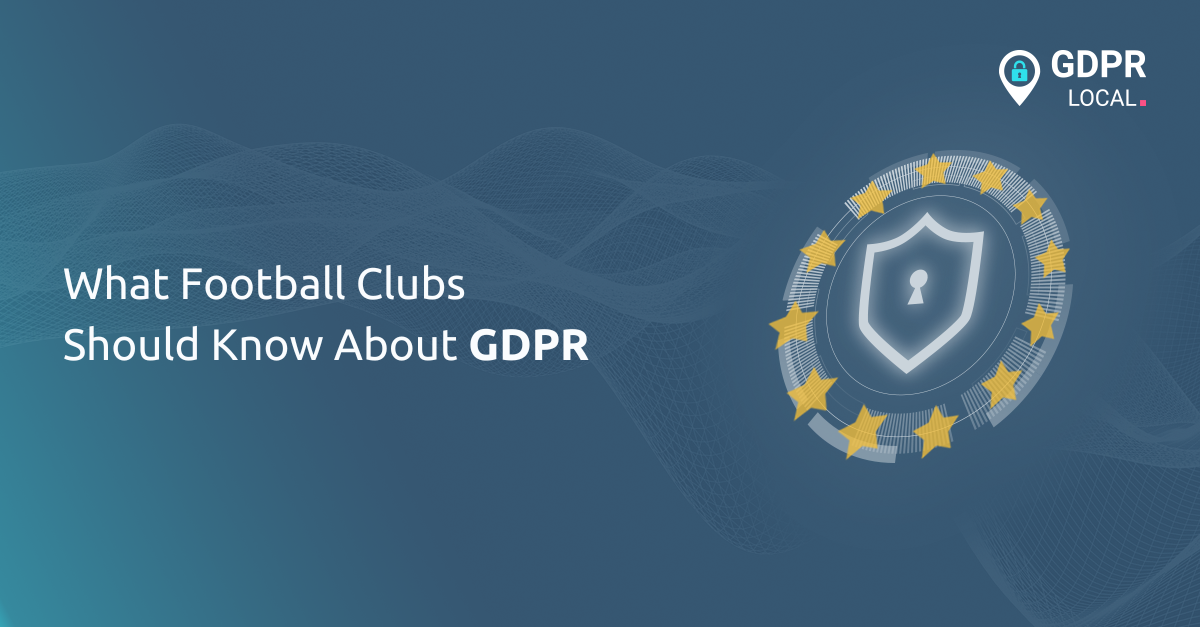
Protecting Personal Data: What Football Clubs Should Know About GDPR
The protection of personal data is an important part for any football club. It impacts how they engage with fans, manage player information, and handle operational activities.
Football clubs handle sensitive information that requires careful management to meet GDPR requirements and maintain trust among both supporters and players.
Key Takeaways
• Football clubs must obtain clear consent from fans before sending any marketing communication.
• Privacy policies must be transparent and accessible for online platforms and websites.
• Personal data collected during ticket sales should be used strictly for event purposes, with unnecessary data deleted after.
• Player data, especially for youth players, needs strong protection with parental consent where applicable.
• Use of video footage and surveillance must be governed by clear policies respecting individual rights.
Fan Engagement and Marketing
Football clubs regularly communicate with their fans through newsletters, offers, and events. Under the GDPR, clubs must obtain direct consent from fans before sending such materials, ensuring that consent is explicit and specific. This builds trust and protects clubs from non-compliance risks. The focus should be on clear messaging about data use, allowing fans to easily manage their preferences.
Website and Online Activities
Clubs’ websites serve as vital engagement tools and often collect user data through cookies and online forms. GDPR requires clubs to publish a clear privacy policy that explains how data is collected, used, and stored. Fans should be able to find this information easily and understand their options for data control. Additionally, clubs need to manage cookies responsibly and secure any data collected through these digital channels.
Ticket Sales and Attendee Data
When tickets are sold, clubs gather personal details required to organise the event. The use of attendee data must be strictly limited to event-related purposes, such as admissions and communications. Post-event, clubs are responsible for deleting or anonymising data that is no longer necessary. This minimises data exposure and aligns with the GDPR’s principles of data minimisation and storage limitation.
Player Data and Contracts (Focus on Youth Players)
Player information includes medical records, performance stats, and contracts, which demand secure handling and restricted access. Clubs working with youth players must receive consent from parents or guardians before processing data related to registration, health, or communications. Protecting this sensitive data upholds players’ privacy rights and mitigates legal risks for the club.
Video Footage and Surveillance
Football clubs utilise video for coaching, match analysis, and security purposes. GDPR mandates informing those recorded about the footage’s purpose and their rights tied to it. Clear policies must define retention periods and who can access the videos. Proper management here protects individuals’ privacy and helps clubs comply with data protection law.
How GPDRLocal Can Help
Football clubs must be aware of their obligations regarding EU, UK, and Swiss Data Protection Representatives, depending on where they operate. For UK-based clubs engaging with EU or Swiss residents, appointing an EU or Swiss Representative is required to comply with GDPR and Swiss FADP regulations.
Conversely, clubs based in the EU need to designate a UK or Swiss Representative if they process personal data of UK or Swiss residents.
These representatives serve as a point of contact for data protection authorities and individuals, providing an essential layer of compliance and support.
GDPRLocal provides a quick and easy setup for these Representative services, including written agreements, support with data processing records, and ongoing compliance assistance, helping clubs efficiently meet their cross-border data protection responsibilities.
Conclusion
The GDPR is becoming essential for football clubs, affecting nearly every aspect, from fan communication to player management and operational activities. By focusing on transparent consent practices, clear data policies, and secure handling of personal data, clubs can protect themselves legally and earn the trust of fans and players.
FAQs
1. Do football clubs need explicit consent before sending marketing emails to fans?
Yes, clubs must get explicit and informed consent from fans before sending marketing communications such as newsletters or promotions.
2. How long can clubs keep personal data collected from ticket sales?
Clubs should keep attendee data only as long as necessary for the event’s purpose and delete or anonymise it once it’s no longer needed.
3. What protections are required for youth players’ personal data?
Clubs must obtain parental or guardian consent before collecting or processing any personal data related to youth players and ensure this data is securely stored and accessed only by authorised personnel.